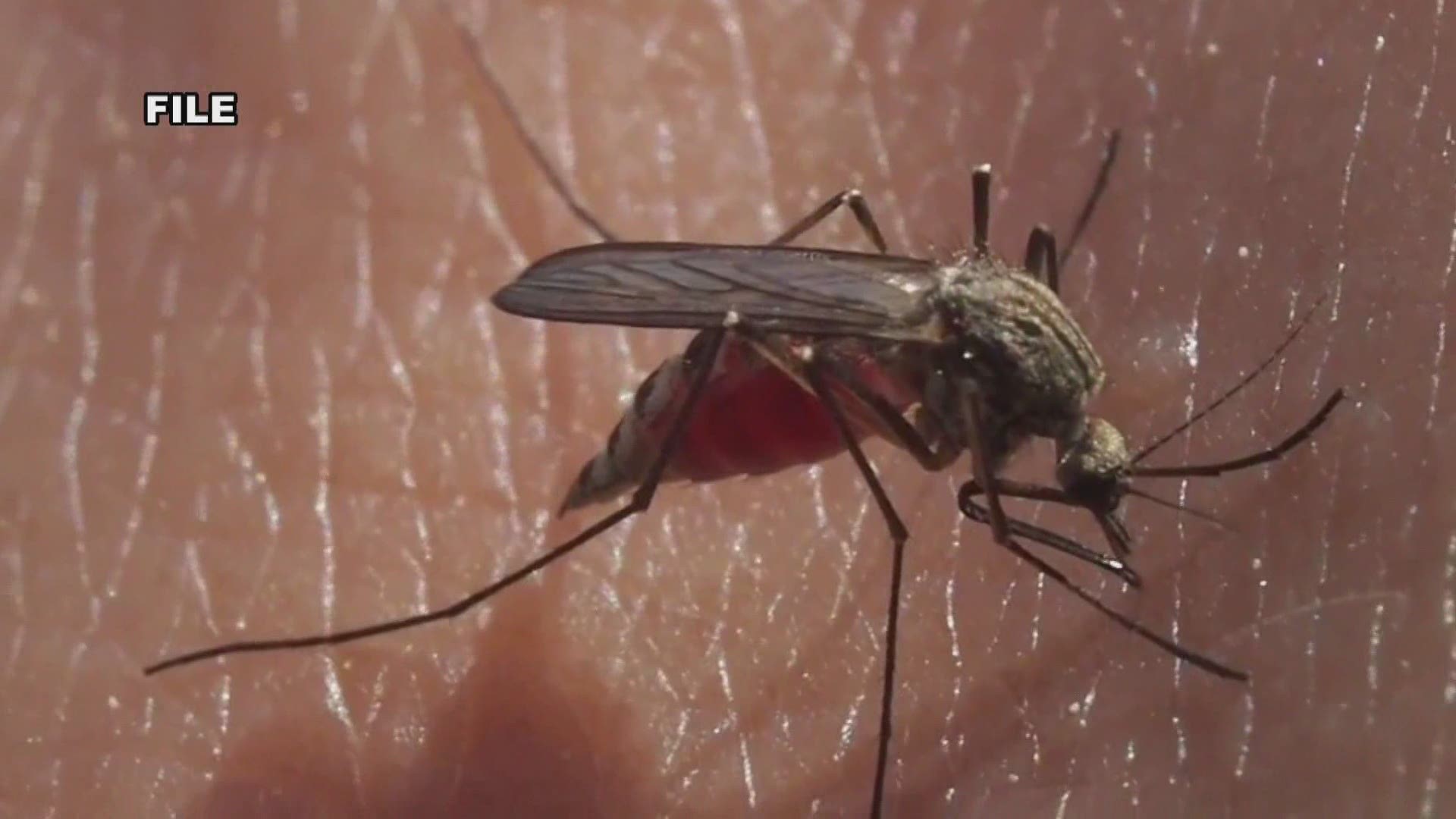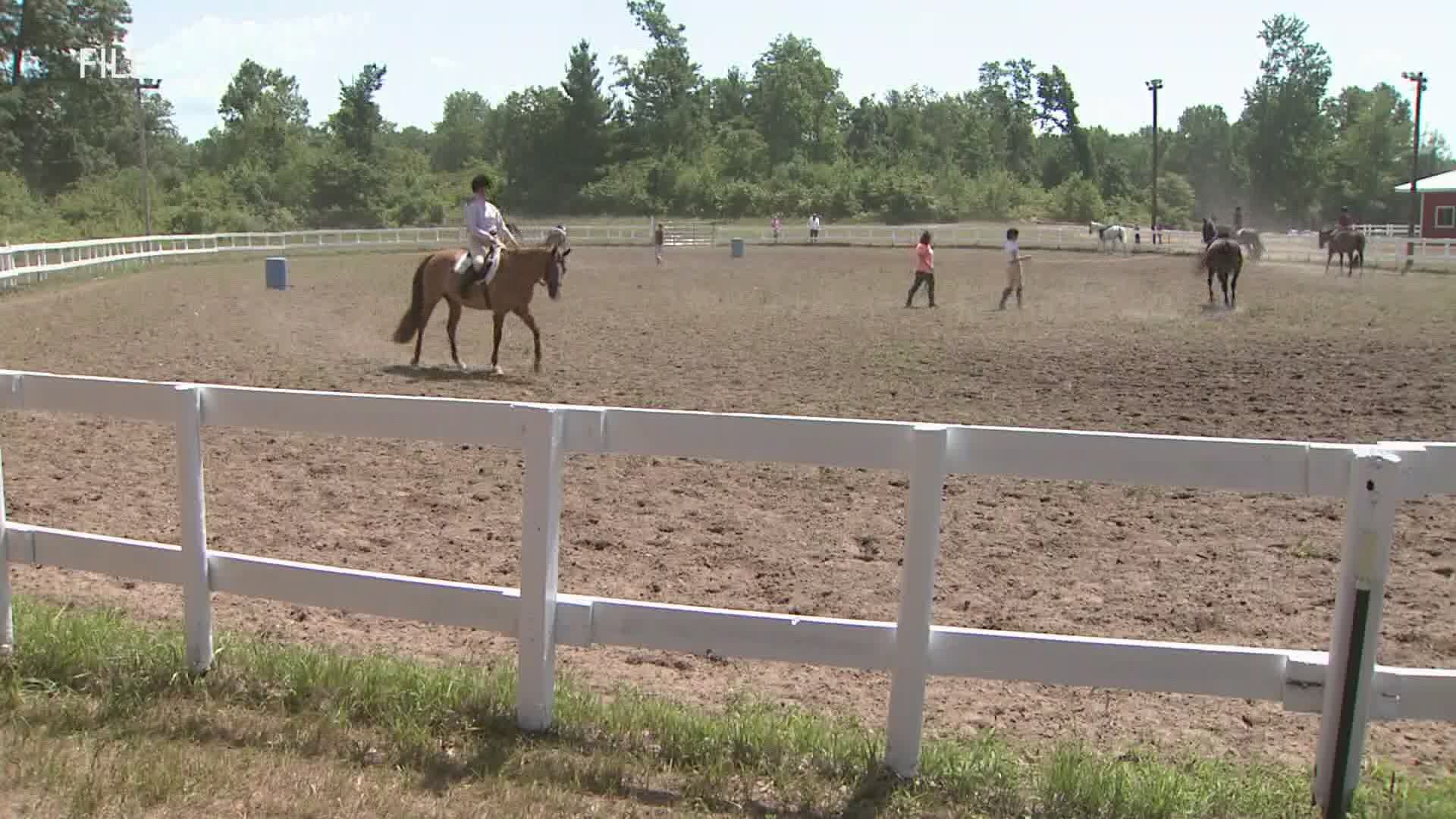LANSING, Mich. — The Michigan Department of Health and Human Services is asking local officials in nine counties to consider rescheduling outdoor activities that occur after dusk, especially those involving children, as cases of Eastern Equine Encephalitis increase.
This includes evening activities like sports practices or games.
As of Sept. 10, the cases of EEE, a deadly mosquito-borne virus, are outpacing the number of cases in 2019. Last year, Michigan experienced its worst outbreak of EEE with 10 human cases, six of whom died. This is equal to the number in the previous 10 years combined.
There are 19 confirmed cases in horses in Barry, Clare, Isabella, Jackson, Kent, Mecosta, Montcalm, Newaygo and Oakland counties. Additional animal cases are being investigated.
The state says this is twice as many animal cases as last year. No human cases have been identified yet.
“As animal cases continue to grow, the risks to people increase as well,” said Dr. Joneigh Khaldun, MDHHS chief medical executive and chief deputy for health. “People get EEE the same way horses do – from the bite of an infected mosquito – so a case in a horse means people in that area are also at risk. Limiting exposure at outdoor activities, especially near dusk when mosquitoes are most active, is the best way to keep you and your family safe from this deadly disease.”
There is an EEE vaccine for horses, but not for humans. It is one of the most dangerous mosquito-borne viruses with a 33% fatality rate among people who get sick from being infected.
In 2019, some high school football games were postponed during the peak times when EEE was a threat. This year, comes with additional complications since the football season was already delayed due to COVID-19. The season is scheduled to start Friday, Sept. 18.
The virus is typically seen in late summer to early fall each year in Michigan. Typically, mosquito-borne illnesses, including EEE, will continue to pose a risk to both animals and humans until about mid-October after there has been at least two hard frosts.
Mosquito-borne diseases can cause long-term health effects in people. Signs of EEE include the sudden onset of fever, chills, body and joint aches. Severe encephalitis, resulting in headache, disorientation, tremors, seizures and paralysis and even death can occur.
To protect your horses and other domestic animals (such as dogs, sheep, and goats), measures could include the following:
- Talking to a veterinarian about vaccinating horses against EEE.
- Placing livestock in a barn under fans (as mosquitoes are not strong flyers) during peak mosquito activity from dusk to dawn.
- Using an insect repellent on an animal that is approved for the species.
- Eliminating standing water on the property—i.e., fill in puddles, repair eaves, and change the water in buckets and bowls at least once a day.
- Contacting a veterinarian if an animal shows signs of the illness: fever and stumbling, which can progress to being down and struggling to stand.
To protect yourself and your family, here’s what you should do now:
- Avoiding being outdoors from dusk to dawn when mosquitoes that carry the EEE virus are most active.
- Applying insect repellents that contain the active ingredient DEET, or other U.S. Environmental Protection Agency-approved product to exposed skin or clothing, and always follow the manufacturer’s directions for use.
- Wearing long-sleeved shirts and long pants when outdoors. Apply insect repellent to clothing to help prevent bites.
- Maintaining window and door screening to help keep mosquitoes outside.
- Emptying water from mosquito breeding sites around the home, such as buckets, unused kiddie pools, old tires, or similar sites where mosquitoes may lay eggs.
- Using nets and/or fans over outdoor eating areas.
For more information about mosquito-borne diseases, visit Michigan.gov/EmergingDiseases.
RELATED VIDEO:
►Make it easy to keep up to date with more stories like this. Download the 13 ON YOUR SIDE app now.
Have a news tip? Email news@13onyourside.com, visit our Facebook page or Twitter. Subscribe to our YouTube channel.


